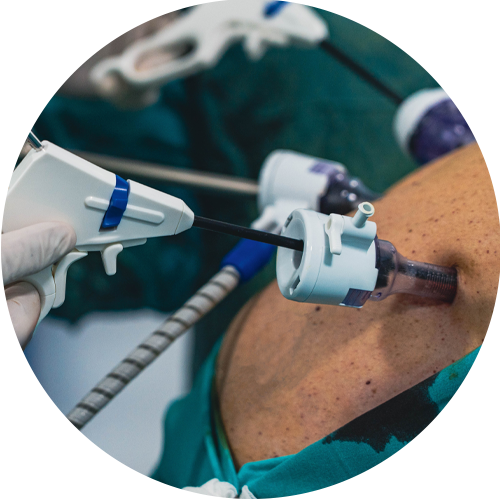Call Us
|
MAH Faridabad 0129-6935059 |
|
MAH Gurugram 0124-4131011 |
| MCIMS Ahmedabad 079-48051904 |
| Brain Stroke Helpline Gurugram 1800-309-0247 |
Gastrointestinal Surgery is a surgical specialty that deals with disorders and diseases of the digestive system, including surgical interventions on organs like the esophagus, stomach, small and large intestines, rectum, liver, gallbladder, pancreas, and rarely the spleen. GI surgery is conducted for a variety of conditions, which may range from cancers and blockages to inflammatory diseases and other disorders hampering the normal functions of the digestive organs. The surgeries range from minimally invasive techniques like laparoscopic surgery to big open surgeries based on the severity and location of the condition. GI surgery plays a paramount role in the management of complex diseases of the gastrointestinal tract, greatly improving patient outcomes.
Here are some of the disorders that require Gastrointestinal Surgery:
(GI) surgery encompasses a wide range of procedures that target different parts of the digestive system. Below is a list of the various types of GI surgeries:
The tests may include:
Following is a step-by-step explanation of what happens during gastrointestinal surgery:
Here are the advantages of gastrointestinal (GI) surgery:
Preparing for a gastrointestinal (GI) procedure involves several necessary steps to ensure the best possible outcome. Here's a guide on how to prepare:
Here are some of the essential recovery tips one needs to follow after a GI surgical procedure:

The best and most convenient way to get rid of appendicitis is to undergo surgical treatment. Through surgery, the appendix will be removed completely, which will resolve the issue. Furthermore, the procedure will take around 30 to 45 minutes only.
After surgery, the majority of patients have stomach discomfort, which is often treated with pain medicines. In addition, the discomfort will diminish as the incision site heals. Within a few weeks, the majority of patients can return to their typical activities. Laparoscopic cuts are less painful as compared to open incisions.
Laser surgery for piles or laser hemorrhoidectomy is an advanced procedure that uses a focused beam of light to treat hemorrhoids. It is a minimally invasive procedure that reduces pain and shortens the recovery duration than conventional techniques.
Gallbladder surgery is a relatively safe option to treat issues like gallstones, polyps, and cancer of the bladder. However, laparoscopic surgery is a much safer option than open gallbladder surgery due to small incisions, less scarring, low risk of infection, etc. Open gallbladder surgery can also be a safe and reliable option if performed by a skilled and experienced gastrointestinal surgeon.
Recovery time will vary based on the procedure and the general health condition of the patient. Small and less invasive procedures may require a few weeks of recovery time. Major surgical interventions can take a few weeks to months. Follow-up with the doctor is essential to keep follow up and if there are any complications.
It depends on which surgery is performed on the patient. For instance, a patient who has undergone bowel resection will stay away from those foods that can cause irritation. Generally, a patient should progress gradually to a normal diet, with an initial diet consisting only of bland and easily digestible foods.
Long-term lifestyle changes may be necessary, especially when surgery involves massive changes to the digestive tract. Such alterations can include dietary changes and alterations in the level of physical activity.
These complications can be reduced if the pre-operative instructions are followed religiously, if sterile techniques are employed during the surgery, and if proper care is taken in the post-operative stage. Regular follow-up with the surgical team will allow for the early detection and management of any complication that may arise.